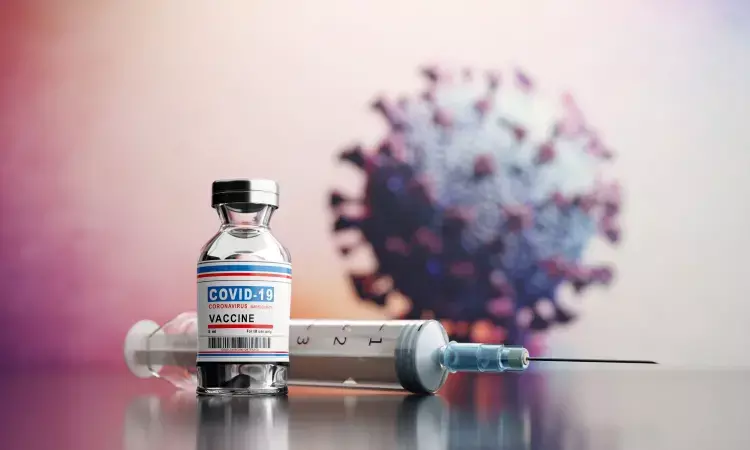- Home
- Medical news & Guidelines
- Anesthesiology
- Cardiology and CTVS
- Critical Care
- Dentistry
- Dermatology
- Diabetes and Endocrinology
- ENT
- Gastroenterology
- Medicine
- Nephrology
- Neurology
- Obstretics-Gynaecology
- Oncology
- Ophthalmology
- Orthopaedics
- Pediatrics-Neonatology
- Psychiatry
- Pulmonology
- Radiology
- Surgery
- Urology
- Laboratory Medicine
- Diet
- Nursing
- Paramedical
- Physiotherapy
- Health news
- Fact Check
- Bone Health Fact Check
- Brain Health Fact Check
- Cancer Related Fact Check
- Child Care Fact Check
- Dental and oral health fact check
- Diabetes and metabolic health fact check
- Diet and Nutrition Fact Check
- Eye and ENT Care Fact Check
- Fitness fact check
- Gut health fact check
- Heart health fact check
- Kidney health fact check
- Medical education fact check
- Men's health fact check
- Respiratory fact check
- Skin and hair care fact check
- Vaccine and Immunization fact check
- Women's health fact check
- AYUSH
- State News
- Andaman and Nicobar Islands
- Andhra Pradesh
- Arunachal Pradesh
- Assam
- Bihar
- Chandigarh
- Chattisgarh
- Dadra and Nagar Haveli
- Daman and Diu
- Delhi
- Goa
- Gujarat
- Haryana
- Himachal Pradesh
- Jammu & Kashmir
- Jharkhand
- Karnataka
- Kerala
- Ladakh
- Lakshadweep
- Madhya Pradesh
- Maharashtra
- Manipur
- Meghalaya
- Mizoram
- Nagaland
- Odisha
- Puducherry
- Punjab
- Rajasthan
- Sikkim
- Tamil Nadu
- Telangana
- Tripura
- Uttar Pradesh
- Uttrakhand
- West Bengal
- Medical Education
- Industry
COVID-19 booster vaccination linked to temporary rise of blood sugar levels among type 1 diabetes patients

Researchers have found in a new study that Adults with type 1 diabetes may have glycemic elevations after a COVID-19 booster. Although usually mild, a minority of individuals can have profound exacerbations. Therefore, close monitoring of glucose levels after COVID-19 vaccination is recommended in type 1 diabetes patients as they may experience elevated glucose levels a few days after following COVID-19 vaccine booster, according to a study published in Diabetes Research and Clinical Practice.
In patients with a history of type 1 diabetes (T1D), inflammation triggers hyperglycemia. Vaccines cause an acute immunogenic response, and booster vaccines cause more potent immunologic responses.
There is a need for more data to understand the effects of vaccines on glycemic control and insulin requirements in the days immediately after post-vaccination. In the present study, researchers examined the changes in glycemic control and insulin usage immediately preceding and following a COVID-19 booster vaccine among adults with T1D.
In this study, participants wore blinded Dexcom G6 Pro continuous glucose monitors for ten days. After a baseline period, the COVID-19 booster vaccine was administered to the participants, following which glycemic indices were evaluated.
The key results of the study are:
- Twenty-one participants were enrolled.
- 38% and 62 % received a Moderna and Pfizer-BioNTech booster, respectively.
- Compared to baseline, there was an increase in the mean glucose on Day 2 and day 3 (post-vaccination) with a value of 172.8 ± 47.0 mg/dL and 173.1 ± 45.0 mg/dL, respectively.
- On Day 2, there was an increase in Insulin resistance.
- There were no differences in outcome metrics between booster vaccine manufacturers.
They said, “Our study found that those with T1D have transient mild glycemic elevations after receiving a COVID-19 booster vaccination.”
Further reading:
Zilbermint, M., Motevalli, M., Batty, K., Venner-Walcott, J., Edwards, A. C., Burley, T., Jackson, K., Akhtar, M. W., & Demidowich, A. P. (2023). Effects of the COVID-19 Booster Vaccine on Glycemia and Insulin Resistance in People with Type 1 Diabetes: A Prospective Pilot Study. Diabetes Research and Clinical Practice, 204, 110898. https://doi.org/10.1016/j.diabres.2023.110898.
BDS, MDS in Periodontics and Implantology
Dr. Aditi Yadav is a BDS, MDS in Periodontics and Implantology. She has a clinical experience of 5 years as a laser dental surgeon. She also has a Diploma in clinical research and pharmacovigilance and is a Certified data scientist. She is currently working as a content developer in e-health services. Dr. Yadav has a keen interest in Medical Journalism and is actively involved in Medical Research writing.
Dr Kamal Kant Kohli-MBBS, DTCD- a chest specialist with more than 30 years of practice and a flair for writing clinical articles, Dr Kamal Kant Kohli joined Medical Dialogues as a Chief Editor of Medical News. Besides writing articles, as an editor, he proofreads and verifies all the medical content published on Medical Dialogues including those coming from journals, studies,medical conferences,guidelines etc. Email: drkohli@medicaldialogues.in. Contact no. 011-43720751


